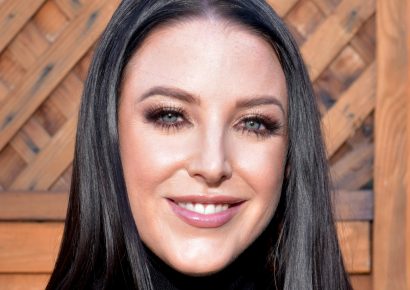"This is the second time I’ve run for election – I also ran in 2006. Last time around we got a very positive response in Brunswick. I haven’t been seeing the voices in Parliament that I wanted to hear. It’s time to give it another shot."
What are the issues that motivated you to become a candidate at this election?
This is the second time I’ve run for election – I also ran in 2006. Last time around we got a very positive response in Brunswick. I haven’t been seeing the voices in Parliament that I wanted to hear. It’s time to give it another shot.
State government powers have been gradually eroded over recent decades, with fiscal and legislative power largely concentrated in the Commonwealth. What is the role of State governments in the 21st century?
That’s a big question! Some people would argue that there is no role for State government, and that’s a very interesting constitutional question. I think State government still has a key role in the areas of education and transport. It’s also important for State government to ensure that federal government policy and spending doesn’t entrench injustice. And State governments can also help in promoting a clean economy.
To what extent do you think voter apathy is a problem for the democratic process, and how do you think that you (and your party) can address such apathy?
I know some people have said that there is a high level of voter apathy, but I’m finding this election campaign very invigorating. There seems to be a very low level of apathy in Brunswick. Through our door knocking activities and participation in public forums we’re finding that people are really connected to the democratic process. Voters are very interested in issues such as climate change and public transport. The Brunswick campaign has been characterised by lots of public forums, and those forums have shown how connected people are. The Greens are helping to address any lingering apathy by providing a strong third force.
What is the extent of your personal interest in the arts?
I’m a tragic reader! I did a literary degree at university, and I read every day of my life. I also play the cello, and I’ve helped form a community orchestra. I go and see bands and live music whenever I can. I try and stay as connected as I can – which, with two children, isn’t always easy!
In a nutshell, what is your party’s policy for arts development in Victoria?
That’s another big question! For me, the arts is very important to Brunswick. The Greens want to make housing in the inner-city areas affordable, so it’s not just developers taking all the dwellings. Our public transport policies are intended to make it easier for people to travel to and from the inner-city areas. We want the VCA to remain in its current forum. We’re also interested in projects like the Newcastle development, where they took a whole lot of disused buildings and converted them into art spaces – something like that could be looked at in Brunswick.
What do you see as the major issues confronting artists in Victoria – and your electorate specifically?
Housing affordability is a major issue. Another important issue is education. Arts education needs to be invested in. We need to have assistance for artists to start-up, including starting up businesses – such as craft shops or record labels.
Do you think the arts provides economic benefits to Victoria? If so, what are those benefits?
The arts creates employment – activities such as craft studios and print works all create employment. To borrow a phrase from The Castle, the Arts also gives a place a ‘vibe’. People want to be round creative spaces and artists.
Liquor licensing laws are seen as a major issue for musicians. How do you think your policies balance community concerns with alcohol-fuelled violence and the reliance by artists on licensed music venues?
We need to break the nexus between live music and violence. If you go into an inner-city music venue people aren’t downing large amounts of scotch and coke and breaking glasses over each other’s heads – they’re there for the music. That needs to be reflected in the licensing laws. We also need to get rid of the 2am lock-out – it’s just another version of the 6 o’clock swill. And the curfew happens at a time when there’s no public transport. We’re also looking at how music can be recognised in planning laws. The Brumby government has looked at these issues in isolation, but what I like about the Greens’ policies is that they’re all connected.
What role (if any) does Government have in funding or facilitating art that is confronting or unpalatable to particular demographic groups?
They say the measure of a just society is how well it treats its disadvantaged people. So a measure of a democratic society should be how well it treats the people who challenge it. We don’t believe art that is confronting needs to be censored.
In a technological era where the community has access to a broad range of content via the Internet, what role does government – particularly State – have in the area of censorship?
The State government doesn’t have a role, especially in relation to the Internet. The federal government is still grappling with the issue of censorship, especially measures that can assist in protecting children. If something is confronting, people don’t have to look at it. I don’t see the State government as having a role in relation to censorship.
Cyndi Dawes is the Greens candidate for Brunswick.

